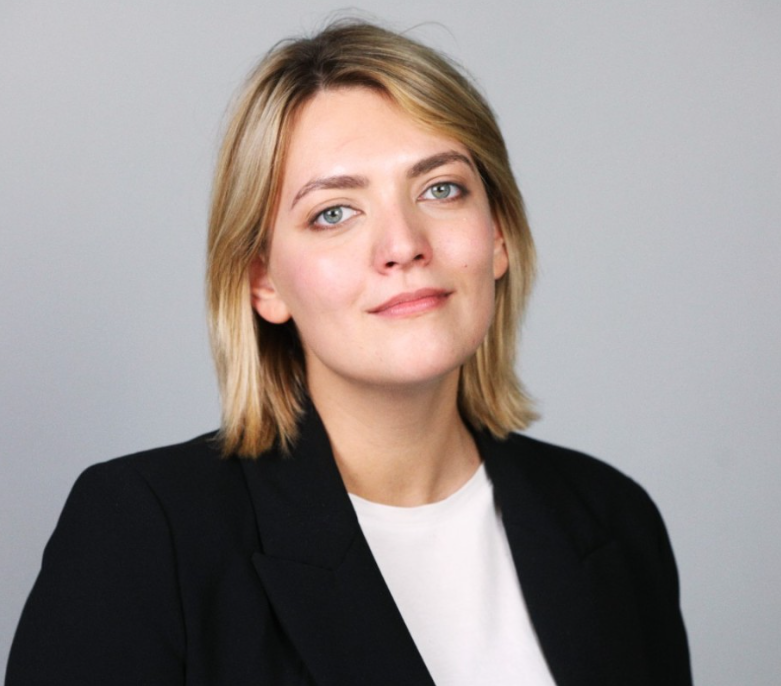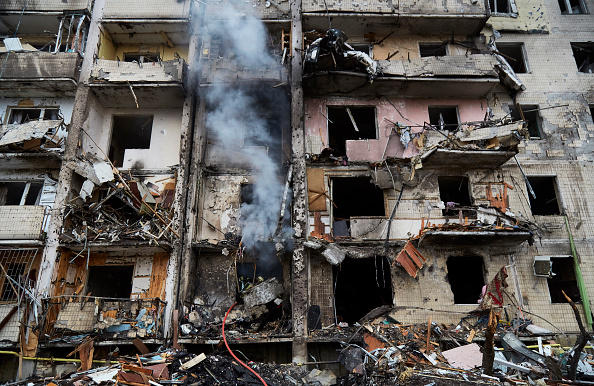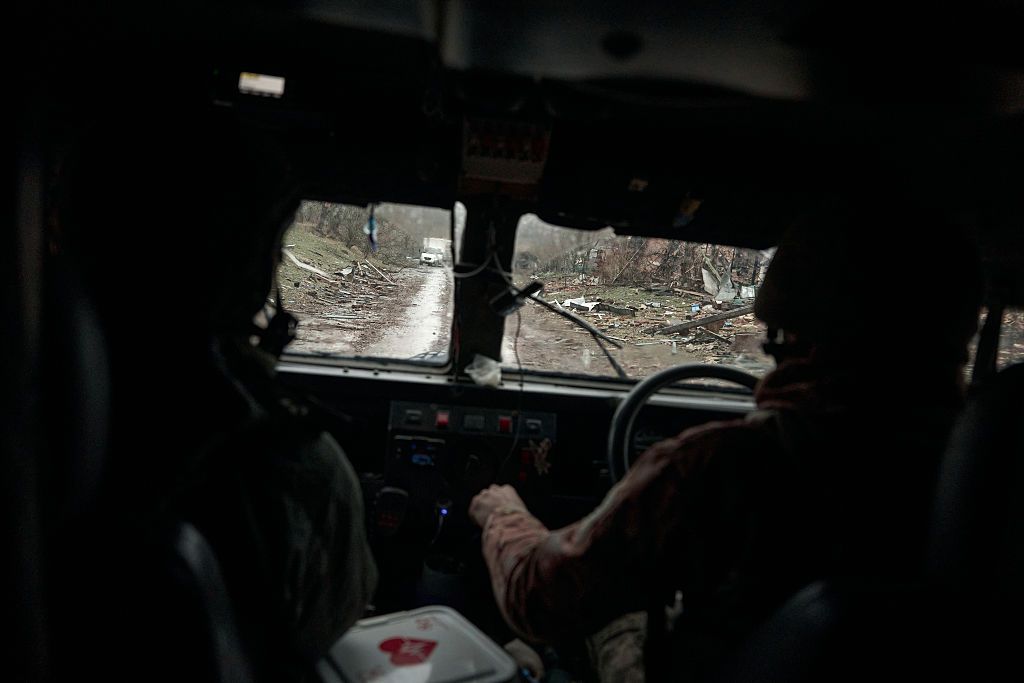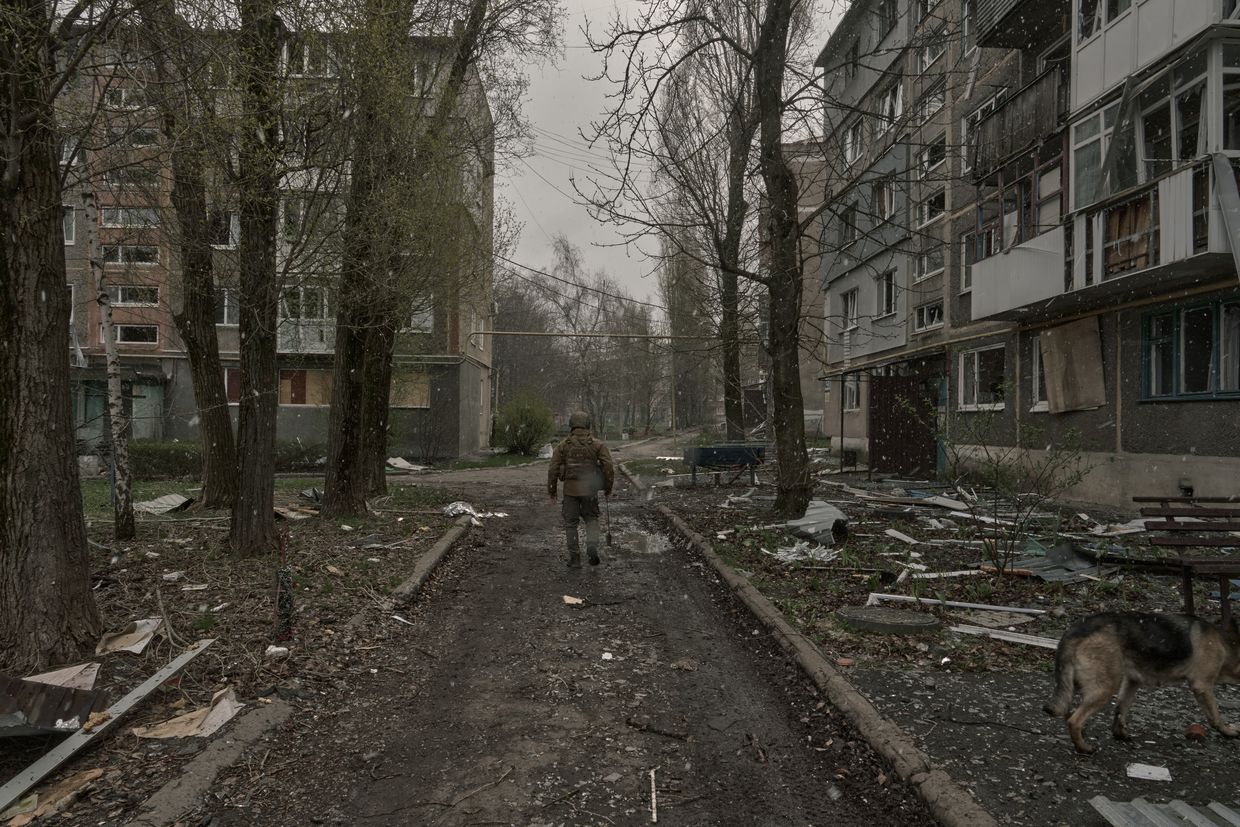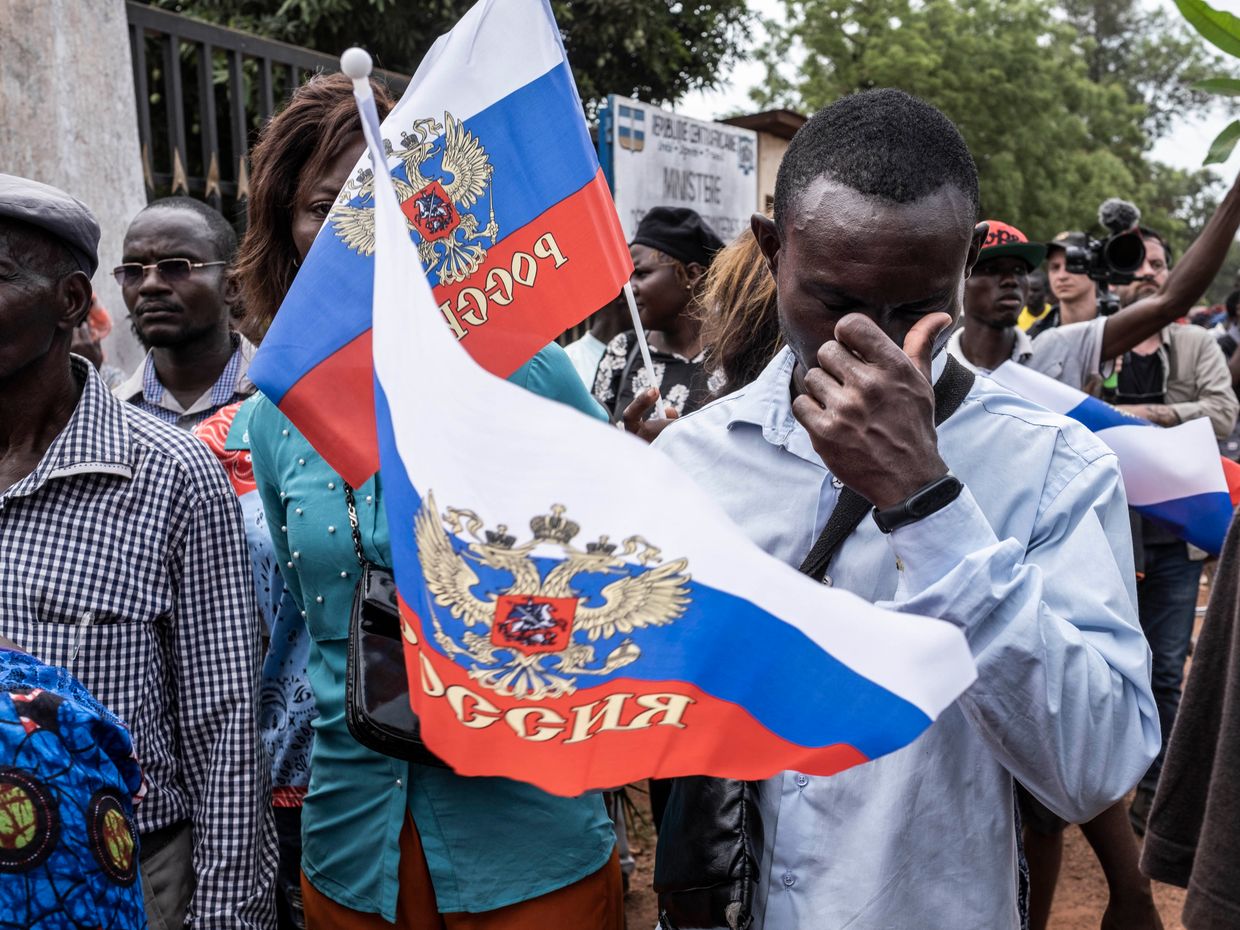“I woke up from a call from a friend. He told me Russia was bombing Kyiv," says Artem Basistiy, a 29-year-old from Crimea, who had lived in Kyiv for the last four years.
"Then I heard a siren going off, quickly grabbed the dog, and ran to the shelter. After the air raid was over, I called my mom to tell her I was alive, she answered 'what are you talking about? Of course, you are. Putin is trying to save you.'
Basistiy has been regularly speaking with his mother, who continues to live in the Russia-occupied peninsula.
Since Feb. 24, when Russia launched its full-scale war against Ukraine, Basistiy says he isn't succeeding at convincing his mother of how much danger he is in.
According to the United Nations, nine days of Russia's war have already killed 752 civilians. Footage of Russian shelling of residential areas, including schools, kindergartens and hospitals has been making rounds all over the internet.
However, people living in Russia and Russian-occupied areas such as Crimea and Donbas have been left blindsided.
Russian President Vladimir Putin claimed to have “no ill intentions towards neighboring countries” and denied firing missiles on the civil infrastructure during what he calls a “special military operation” to “disarm and de-Nazify” Ukraine.
The statement fits well into Moscow’s age-old tactic, inherited from the Soviet Union, to construct a false reality in an attempt to hide facts and alleged war crimes.
The USSR called the Soviet invasion of Finland a “liberation campaign,” the Soviet-Afghan war — an “operation of providing international assistance” to Afghanistan, while Russia's previous major war, the invasion of Georgia, was branded as a campaign “to force to peace."
This time, to mute dissent and limit the Russian people’s access to information, the Kremlin took new heights.
On March 4, Russia stepped up censorship by passing a law punishing the spreading of “false information” about Russia’s armed forces with up to 15 years in prison. The law criminalized calling Russian war against Ukraine a “war” on social media or any news article or broadcast.
As a result, the semi-independent media outlets, the Echo of Moscow radio station and the TV Rain television channel shut down, Facebook and Twitter was officially banned, while those media outlets that decided to keep operating, such as Novaya Gazeta, agreed to take down coverage of Russia's war on the Kremlin's request.
TV channels, which are still the main source of information for 62% of the country’s population according to Levada’s center poll, have been making baseless claims that Ukrainians indiscriminately bombed their own hospitals and killed their civilians.
For many Ukrainians it means very tough conversations with relatives in Russia or in Russia-occupied territories of Ukraine, who don’t believe their first-hand accounts of Russian attacks.
“I begged my mom not to watch Russian propaganda and to open other sources — Ukrainian, American, or British, doesn’t matter. But she told me they were zombifying us,” Artem said.
He knew his mother was a Russia supporter long before the all-out war began. Unlike him, she was happy when the Russian flag was raised over the building of the Crimean parliament in 2014. She praised Putin for being a strong leader and mocked Ukraine’s Volodymyr Zelensky, calling him a “clown.”
But Basistiy hoped that in the end, she would believe him, her own son, over the TV propaganda.
On the fourth day of the war, he decided to join the Territorial Defense Forces of Ukraine. So far, he has not entered its ranks, waiting for his turn.
“I called her again in a few days, hoping she followed my advice, read some independent news outlets, and watched videos I sent her," Artem said. "Unfortunately, nothing changed at all. Even after the destroyed apartment buildings in Kyiv, Kharkiv, Cherkasy, Sumy… She said we were hitting our own citizens with high-precision artillery.”
At the end of the conversation, he said to his mother “the same thing Ukrainian defenders told the Russian warship.” In the first day of war, Ukrainian guards of the Zmiiny (Snake) Island in the Black Sea famously told a Russian warship that demanded that they surrender to “go f*ck yourself.”
Later Basistiy posted a story on Instagram saying: “02/03/2022, the day I lost my mom.”
He was devastated, wanted to tear everything, throw things, cry, bang his head against the wall. He was having a nervous breakdown, he said. He hoped that at least his father would support and believe him, but he couldn’t know for sure as there was no way to reach him.
“My father works on a drilling rig in the Black Sea between Crimea and Odesa. His team was supposed to be replaced the day before the invasion, but they are still at sea, and I still haven’t talked to him,” he said.
Basistiy’s father is from Grozny, Chechnya, the city war-torn by Russia twice, in 1994-1996 and 1999-2000, what is known as the First and Second Chechen War. His family fled to Crimea accompanied by soldiers, having only minimal belongings.
“My father knows what war is firsthand. I really hope that we will get in touch soon and he will understand everything and be able to convey this to my mom. Otherwise, I can consider myself an orphan with 100% certainty.”
